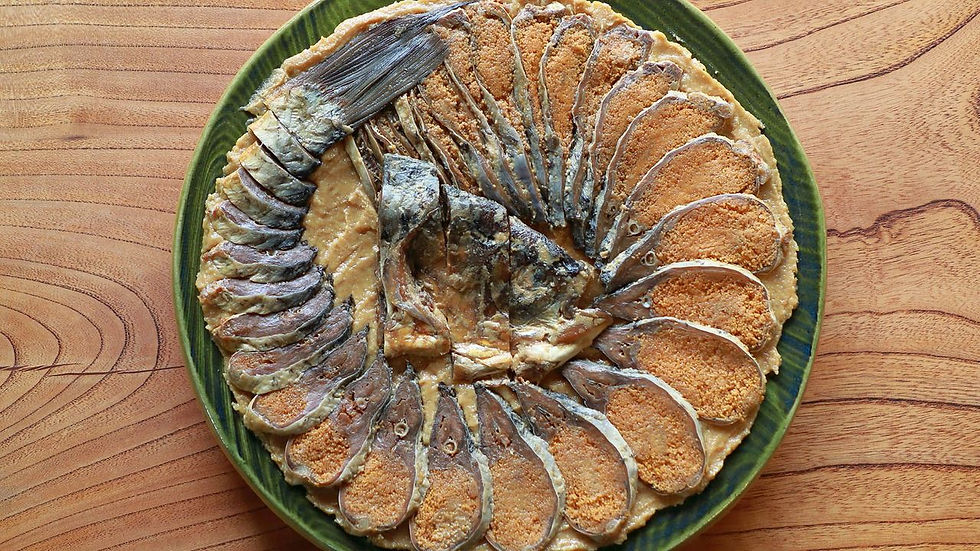Before sushi, there was Funazuhi
- The Epicurer

- 3 nov 2025
- 2 Min. de lectura
In the quiet town of Shiga, where the vast waters of Lake Biwa shimmer beneath the mountains, time itself seems to slow. Here, in the cradle of Japan’s oldest freshwater lake, a centuries-old delicacy continues to defy modern tastes and trends. It is called funazushi—a dish so bold, so redolent of history, that tasting it feels like stepping back into another age.
Long before sushi meant glistening slices of tuna atop pearly rice, there was narezushi—the ancestor of all sushi, born of necessity and patience. Funazushi is its purest surviving form, crafted from the humble nigorobuna, a kind of crucian carp found only in Lake Biwa. Caught in early spring, the fish is cleaned, salted, and then, after weeks of curing, layered carefully into wooden barrels with rice, where it ferments quietly through the heat of summer and the chill of winter. The process may take a year, sometimes more. What emerges is a treasure of preservation—a taste of time itself.

The aroma is unmistakable, strong and almost startling at first—ripe, tangy, deeply fermented. But to those who love it, funazushi is a revelation. Its flavor is complex: sour yet mellow, sharp yet rounded by the umami of the lake and the rice that cocooned it. Thin slices are served with sake, their golden flesh gleaming like amber. The first bite can be a shock, the second an awakening; by the third, a quiet admiration begins to settle in.
To the people of Shiga, funazushi is far more than food. It is inheritance, patience, and the wisdom of the lake handed down through generations. Families still prepare it in old wooden houses, their cellars rich with the scent of fermenting rice and fish. For them, this dish carries memory—the taste of ancestors who learned how to make sustenance last through harsh winters and lean years.
In an age of instant meals and global sameness, funazushi endures as an act of devotion to place and time. It reminds Japan—and anyone willing to taste it—that true flavor is not always easy, and that beauty can live in what challenges us. To share it is to share a story: of water, salt, rice, and a people who refuse to forget how their food once spoke to the rhythm of nature.

Some say you never forget your first taste of funazushi—its boldness, its lingering echo of the lake. It is the taste of Japan before Japan was modern, the whisper of a world preserved, not only in barrels of rice but in the hearts of those who still believe that patience is a kind of art.



